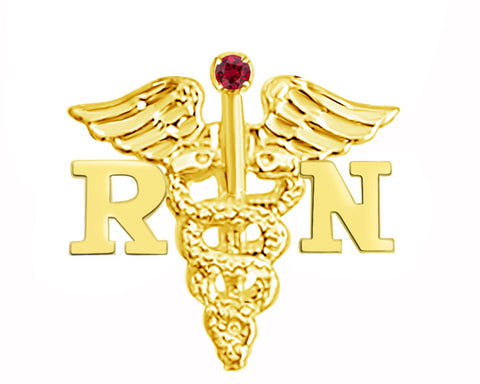
You're First Job as a New Nurse - Ace the Interview
Embarking on the journey to secure your first full-time job in nursing is both exhilarating and daunting. After the hard-earned success of graduating from nursing school, receiving your nursing pin, and passing the NCLEX, you are on the brink of stepping into the professional world. This blog aims to guide you through the process of preparing and finding your first full-time nursing job, ensuring a smooth transition from a student to a professional nurse.
Reflect on Your Career Goals
The first step in your job search is to reflect on your long-term career goals and what you hope to achieve in your nursing career. Consider the specialties that interest you, the type of work environment you thrive in, and your geographical preferences. Whether you're drawn to the intensity of emergency nursing, the complexity of critical care, or the community impact of public health nursing, understanding your career aspirations will help you target your job search effectively.
Build a Strong Resume and Cover Letter
Your resume and cover letter are crucial tools in your job search. They should not only highlight your educational background, clinical experiences, and skills but also reflect your passion for nursing and your commitment to patient care.
- Resume: Include your education, licenses (including your RN license number and state), clinical rotations with brief descriptions of duties, and any relevant experience, such as healthcare volunteering or part-time jobs in medical settings. Tailor your resume for each job application to align with the job description.
- Cover Letter: Use the cover letter to tell your story — why you chose nursing, what you bring to the table, and how you align with the values and goals of the potential employer. Make it personal, compelling, and professional.
Leverage Your Network
Networking is a powerful tool in the nursing field. Engage with instructors, classmates, and colleagues from your clinical rotations. Attend nursing conferences, workshops, and job fairs, and become an active member of nursing organizations and online communities. These connections can offer invaluable advice, mentorship, and job leads. Remember, many job opportunities are not advertised and are filled through word-of-mouth and referrals.
Gain Additional Experience and Certifications
While not always required, additional certifications can make you more competitive in the job market. Consider obtaining certifications relevant to your desired specialty, such as ACLS (Advanced Cardiac Life Support) for critical care or PALS (Pediatric Advanced Life Support) for pediatric nursing. Volunteering in healthcare settings can also provide practical experience and demonstrate your commitment to the nursing profession.
Prepare for the Interview
Once you start landing interviews, thorough preparation is key to making a strong impression. Research the healthcare facility and its nursing philosophy, rehearse answers to common nursing interview questions, and prepare a list of questions to ask the interviewer. Interviews are an opportunity to showcase not only your knowledge and skills but also your personality and how you fit within the team and the organization's culture.
Embrace Flexibility
Your first nursing job may not be your dream job, and that's okay. Be open to different opportunities, even if they deviate slightly from your initial goals. Each nursing role will provide valuable experience, help you build a diverse skill set, and clarify your career aspirations. Whether it's a different specialty, a rotating shift, or a less-than-ideal location, each job is a stepping stone in your nursing career.
Focus on Continuous Learning
Nursing is a profession that demands lifelong learning. Stay curious and seek opportunities for professional development. Attend workshops, pursue further education, and seek feedback from peers and supervisors. Each experience and piece of knowledge will contribute to your growth as a nurse.
Practice Self-Care
The transition from nursing student to professional nurse can be stressful. Remember to take care of yourself physically, emotionally, and mentally. Establish a work-life balance that allows you to recharge and maintain your passion for nursing.
Conclusion
Securing your first full-time job in nursing is a significant milestone that marks the beginning of your professional journey. By reflecting on your career goals, building strong application materials, leveraging your network, and embracing every opportunity for growth, you can set the foundation for a fulfilling nursing career. Remember, every nurse was once a new graduate — with perseverance, openness to learning, and a commitment to patient care, you will navigate this transition successfully and make a meaningful impact in the lives of those you care for.
